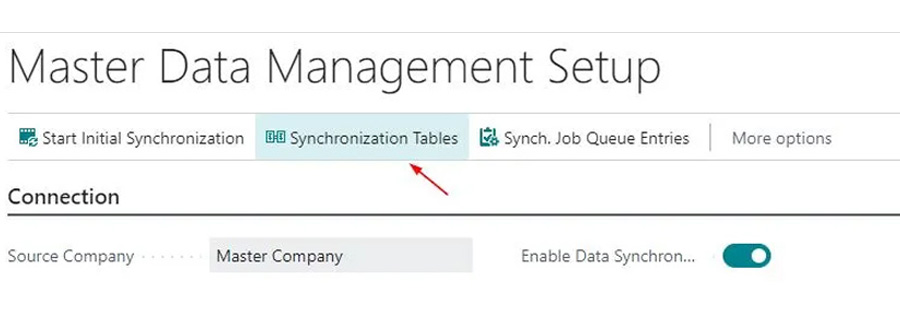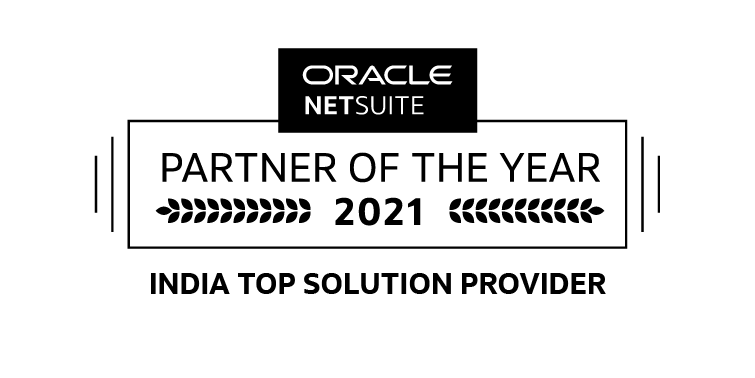Table of Contents
- 1 Master Data Management in Dynamics 365 Business Central
- 2 What Is Master Data Management?
- 3 Master Data Management Features in Dynamics 365 Business Central
- 4 Most Popular Features of MDM or Master Data Management
- 5 Who will benefit from Master Data Management in Business Central?
- 6 Case Study: How NavisionIndia Help Overcome the Challenge of Synchronizing Master Data in Business Central?
Master data means the information key to the operation of any business. It is often non-transactional in nature but renders support to transactional processes, and operations.
Master Data Management in Dynamics 365 Business Central
The core information within the business organization that specifies objects around which business is running is called ‘Master Data.’ Typically, it changes frequently and covers reference data essential to operate the business.
The Four General Master Data Domains
- Customers with sub-domains of Employees, Customer, and Salesperson.
- Locations with sub-domains of office location and geographic divisions.
- Products with sub-domains of Product, Part, Store, and Assets.
- Other such as contract, warranty, and license sub-domains.
What Is Master Data Management?
MDM or Master Data Management stands for the technology, tools, and processes to make sure there is coordination of master across the whole enterprise. MDMS renders an integrated master data service to assist businesses in driving accuracy, consistency, and completion of master data across organizations and business partners.
With Master data management, business administrators can transfer masters and setups from one company or legal entity to another in the same environment.
Master Data Management Features in Dynamics 365 Business Central
- It allows you to migrate Company master data between other legal entities and establish synchronization between tables and field data.
- You can use MDM to set up more advanced synchronization couplings and filter on table records that gives you better control over the synchronization.
- Business administrators can instantly extract Changes in the main company and transfer to the receiving companies by the job queue.
- It allows users in the receiving company to review synchronization logs, track changes, and resolve any critical issue efficiently.

*Note: The synchronization process is based on a pull model, not a push model. This defines that subsidiaries can extract data from the source company. Once you set up the synchronization, job queue entries begin updating data in subsidiaries as per the changes made in the source company.
Experienced Business Central Consultants and Microsoft Experts recommend performing one-way synchronization. Although two-way synchronization can be done, Microsoft doesn’t recommend setting up bi-directional synchronization as it can generate conflicts or unnecessary overwrites.
Most Popular Features of MDM or Master Data Management
- Extension of 12 tables with Master Data Fields
- Creation of Individual Data Structure
- Bulk update multiple item records
- Creation of Individual Data Views
Images and Rich Media
Businesses can add files, images, user guides, and any rich media in master data. Master Data Management in Business Central structures data as per the attribute, whether it is a text, image, and ensures its visibility as a whole.
Bulk Updating
With Master Data Management in Dynamics 365 Business Central, you can update item records, i.e. from lists from suppliers in bulk.
Editing in Excel
MDM enables business administrators to make changes to data in Excel and submit the changes back into the system.
Custom Data Views
Get configurable display to closely monitor data. Master Data Management in Dynamics 365 Business Central assists in creating your data views with data from several tabs and records.
Individual Data Hierarchy
With MDM, you can drive standardization in item data across all departments. Additionally, you can design your data hierarchy and centralize the management of web shop item data with HTML-formatted data.
Templates
It enables you to create new items from item templates available in Master Data Management in Business Central.
Master Data on Documents
Automatically add master data to your outgoing documents in Dynamics 365 Business Central. On Sales and Purchase documents, you can add data about items and customize the documents as per your settings on customers and vendors.
Item Variants with Master Data
Manage item variants in Microsoft Dynamics 365 Business Central. Sales and Purchase Orders enable you to utilize a matrix to enter and edit order lines. Additionally, you can simplly mass update across many variants, which is efficiently managed by the Master Data configuration.
Who will benefit from Master Data Management in Business Central?
Master Data Management is chosen by businesses and customers with multiple separate company databases within the one Business Central tenant that share the same master data, configuration, setup, accounting periods, and other company-level data points.
Business Benefits with Master Data Information
- Completely Customizable Master Data Structure
- Industry standard-based Practices at a Minimal Price
- Easy, Quick, and Guided Implementation
The business benefits of our Master Data Management extension
- Better Control for Master and reference data across the business.
- Add, Update, and Delete nominated data to be automatically replicated across one or many nominated companies.
- Quick and accurate data changes
- Prevention from multiple entry points for common data across entities.
- Accelerated processes with fewer reviews and approval checkpoints for auditors.
- An audit log for 360-degree visibility and tracking of every addition, change, and deletion of action.
- Speed, Quality, and Management of Data Fields
Introduction:
In the fast-paced and interconnected world of business, global companies often face the challenge of managing and synchronizing master data across their various subsidiaries and branches. A seamless flow of information between different entities is vital for maintaining consistency, reducing errors, and improving overall efficiency. In this blog, we will explore a solution that can help streamline these processes – Master Data Management setup in Business Central.
The Challenge:
Imagine a manufacturing company with a vast global presence and multiple subsidiary companies. Each subsidiary manages its data separately, including vendors, customers, products, and other critical master data. The client wants a solution that enables them to create and manage master data in one master company and automatically synchronize it across all their subsidiary companies.
The Solution – Master Data Management Setup:

To address the client’s requirements, we recommend implementing a Master Data Management (MDM) set up in Microsoft Dynamics 365 Business Central. MDM allows for the smooth transfer and synchronization of master data between different companies within the same environment. This data synchronization engine ensures that data remains consistent across all subsidiaries, even after the initial transfer.
Key Capabilities of Master Data Management:
- Moving master data works when a company subscribes to data from another company.
- You can define the tables and fields to synchronize. For more control over the synchronization, you can filter on table records. You can also set up more advanced synchronization couplings.
- Changes in the main company are immediately pulled to the receiving companies by the job queue.
- Users in the receiving company can review synchronization logs.
It’s important to note that the synchronization process is based on a pull model, not a push model. This means that subsidiaries pull data from the source company, and once the synchronization is set up, job queue entries start updating data in subsidiaries whenever changes are made in the source company.
Conclusion:
Master Data Management setup in Business Central offers a comprehensive solution to the challenges faced by many companies when managing master data across subsidiaries. With seamless data movement, customization options, real-time updates, and a pull model for synchronization, businesses can experience enhanced efficiency, reduced errors, and improved decision-making processes.
At inoday, an official Microsoft Partner, authorized Reseller of Business Central License in India, you can connect to our accredited Dynamics 365 F&O, NAV/Business Central Consultants. These experts accompany you while driving digital transformation and render their industry-rich expertise to use the solution optimally.
Among the top-notch Microsoft Dynamics 365 Business Central Partners, we hold extensive experience in delivering adaptive, cloud-based solutions to ensure successful digital transformation of the business. Our Business Central Consultants and the pool of Experts are committed to offer uncompromised solutions for businesses of all size.
We assist in implementing business changes with time-saving capabilities, decreasing maintenance costs by steering standardization, and streamlining master data maintenance to let thriving businesses advance with value-adding software solutions, processes, and methodologies.
For more information across Master Data Management in Business Central, write to us at info@inoday.com Or Schedule A Demo








